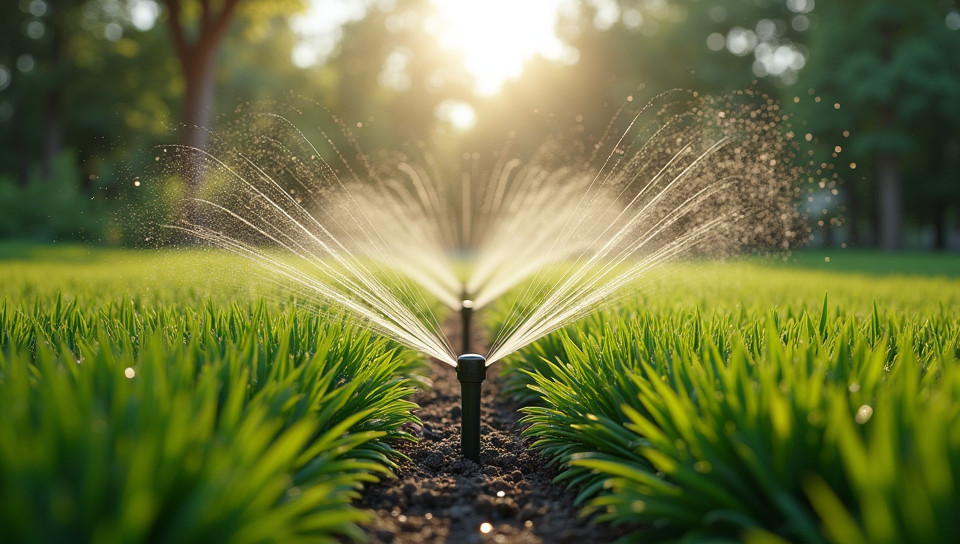Saves water by optimizing irrigation systems design 84%

The Future of Irrigation: How Optimizing System Design Can Save Water
As the world grapples with the challenges of climate change, water scarcity has become an increasingly pressing issue. With growing populations and changing weather patterns, conserving this precious resource is more crucial than ever. One key area where we can make a significant impact is in irrigation systems design.
The Problem with Traditional Irrigation Systems
Traditional irrigation systems often rely on outdated designs that waste massive amounts of water through over-saturation, runoff, and evaporation. In fact, it's estimated that up to 50% of the world's irrigated water is lost due to inefficiencies in these systems. This not only harms the environment but also increases costs for farmers and water utilities.
The Benefits of Optimized Irrigation Systems
By designing irrigation systems with efficiency in mind, we can significantly reduce waste and minimize the environmental impact of agriculture. Here are just a few benefits of optimized irrigation systems:
- Improved crop yields through precise watering schedules
- Reduced energy consumption by minimizing pumping times
- Lower water bills for farmers and water utilities
- Increased water availability for other uses, such as drinking water supply
Designing Efficient Irrigation Systems
So how can we optimize irrigation systems to save water? The key lies in careful planning and design. Here are a few strategies that can be implemented:
- Implementing precision agriculture techniques, such as satellite imaging and soil sensors, to monitor soil moisture levels and adjust watering schedules accordingly
- Using drip irrigation and micro-sprinkler systems, which deliver water directly to the roots of plants, reducing evaporation and runoff
- Incorporating rainwater harvesting systems to collect and store rainwater for non-potable uses
The Future of Water Conservation
As we move forward in our quest to save water, it's clear that optimizing irrigation systems design will play a critical role. By embracing innovative technologies and designs, we can create more efficient, sustainable agriculture practices that benefit both the environment and the economy.
In conclusion, saving water by optimizing irrigation systems design is not just a matter of reducing waste; it's also an opportunity to improve crop yields, reduce energy consumption, and increase water availability for other uses. By working together to implement these strategies, we can create a more sustainable future for generations to come.
- Created by: Sofia David
- Created at: Aug. 19, 2024, 9:43 p.m.
- ID: 7746



